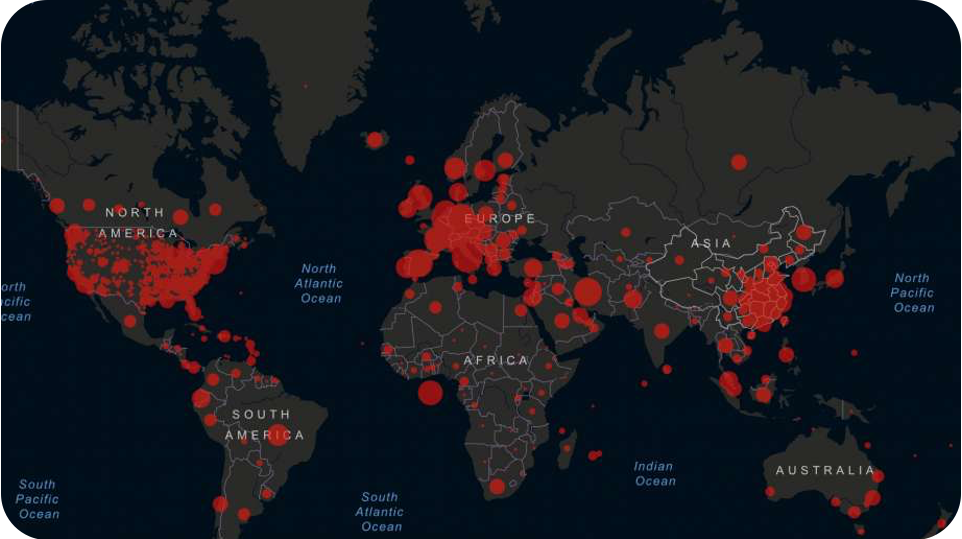For many of us, stay-at-home orders over the past several months have meant that we are sleeping, eating and working in the same place, potentially with the same people, all the time. Many couples may be facing a “make or break” time for their romantic relationship — and as a result, they are searching for tools to manage increased stress, anxiety and uncertainty.
That’s where Ashley K. Randall’s research comes in. Randall, an associate professor in counseling and counseling psychology at Arizona State University's College of Integrative Sciences and Arts, is leading an international study that examines how couples are dealing with stress related to COVID-19, supported by the American Psychological Association’s Office of International Affairs.
Ashley K. Randall
Randall, working with Claudia Chiarolanza of Sapienza – University of Rome, launched a survey in March that asked participants about the stressors they were experiencing, as well as the stressors they perceived their partners experiencing.
Since then, more than 14,000 people across 27 countries have participated in the study, and their responses have underlined couples’ need for strategies to protect themselves and their relationships against COVID-19-related stressors.
The research will soon be submitted in the Journal of Social and Personal Relationships — but in the meantime, Randall (who is also the editor of Personal Relationships, one of the flagship journals of the International Association for Relationship Research), was willing to share a few takeaways.
Question: How can couples combat the additional stress that the pandemic may be putting on their relationship?
Answer: It’s important to set the playing field: Recognize that you and your partner are a team. Although you and your partner may be experiencing similar stressors, you also may be experiencing different, personally relevant, stressors.
For personally relevant stressors, your first step should be trying to identify the specific emotions that you are feeling because of the situation. How can you, and do you, communicate those feelings to your partner? On the flip side, how do you recognize that your partner is stressed?
Q: How is stress typically communicated in a romantic relationship?
A: We communicate stress — and other emotions — in two ways: nonverbally and verbally. Imagine, for example, that it’s the fifth time you’re telling your partner to close the kitchen cabinets. How is it that they keep forgetting? Frustrated, you either, A) give your partner a dirty look and slam the cabinet closed, or, B) tell your partner, “Are you seriously going to leave this open after I told you it annoys me?”
If you’re the cabinet slammer, you are likely to communicate your stress nonverbally, whereas if you would opt for option B, you are likely to communicate your stress verbally.
Q: I’m not saying I’m the cabinet slammer, but — are there ways to improve stress communication for those of us who have fallen into bad habits?
A: Verbally expressing your feelings in a calm and nondefensive manner is one of the best ways to communicate that stress to your partner. While upwards of 93% of communication is nonverbal, stress reduces our communication quality by roughly 40%. This means that we need to be especially strategic and careful in communicating stress to our partners.
To start, it helps to describe the situation that made you stressed, and then discuss your thoughts and feelings about the situation. When communicating your stress, be mindful to focus on both the feelings you experienced — e.g., threat, loss or damage — and the “deeper” feelings — e.g., fear, sadness and anger. Next, you should identify the personal theme, or in other words, think about why the situation is causing you so much stress.
It is totally understandable that, as an example, changes in finances would cause distress. However, thinking about the “deeper” meaning as to why this causes you stress and expressing that with your partner is helpful. For instance, your loss of work may signal a fear that you are not good enough and that you are not able to provide for your family — all things that are part of our own cultural scripts and personal narratives. Being able to communicate your “deeper” feelings helps your partner better understand where you are coming from, and why things that may not be upsetting to them are upsetting to you.
More than 14,000 people across 27 countries have participated in Randall's relationship stressor study. Photo courtesy Ashley K. Randall.
Q: More effectively expressing our personal stressors seems like it’s only half of the equation. How does listening play into all this?
A: Just as it is important to effectively communicate your stress to your partner, it is also important to be mindful of your actions when the tables are turned. When your partner is discussing their stress with you, remember to give time and space and to listen without interrupting. In this process, you should ask open-ended questions — “How did you experience this?” — and summarize your partner’s experiences without interpreting. For example, if your partner tells you, “I don’t think that I can handle another day of homeschooling the kids,” it is better to respond with “It sounds like you are overwhelmed” than “Oh, you’re mad because 5th-grade math is too hard for you?”
Communicating your stress to your partner is the first step in the process psychologists call dyadic coping, a relationship maintenance behavior that refers to how partners in a romantic relationship help each other cope with stress. Once you are familiar and comfortable in communicating your stress, you and your partner can use positive dyadic coping strategies. These strategies can be emotion-focused, problem-focused or delegated dyadic coping.
Q: What do those strategies look like in practice?
A: Emotion-focused dyadic coping can look like empathizing (“I can understand why you are so upset.”), encouraging (“This is horrible; however, I know that you will be able to come out ahead”), and/or reframing (“While this is stressful, try to see the positive sides”). Problem-focused dyadic coping involves giving practical advice, helping to gather additional information, and/or encouraging solutions. Delegated dyadic coping involves asking your partner to do something to relieve your stress, e.g., watching the kids or pets while you take a nap.
These positive dyadic coping techniques are empirically supported from research on the systemic transactional model of dyadic coping, which acknowledges how the experiences between romantic partners are connected, also known as interdependence. This interdependence of stressors reinforces the importance of positive dyadic coping to provide relief, especially when existing community coping resources are low, due to strained health care systems, for example.
As the number of COVID-19 cases increases, so do our stress levels. But it’s not hopeless: There are ways to manage stress — and to work together with one’s partner to move through this uncertainty.
Written by Mia Armstrong. Top photo courtesy Pexels.
More Science and technology
Largest genetic chimpanzee study unveils how they’ve adapted to multiple habitats and disease
Chimpanzees are humans' closest living relatives, sharing about 98% of our DNA. Because of this, scientists can learn more about human evolution by studying how chimpanzees adapt to different…

Beyond the 'Dragon Arc': Unveiling a treasure trove of hidden stars
NASA's James Webb Space Telescope (JWST) has set a new milestone: capturing images of over 40 individual stars in a galaxy so distant that its light has traveled since the universe was only half its…

ASU selected as home and partner for CHIPS and Science Act-funded national facility for semiconductor advanced packaging
Following a week where a spirited effort by the Sun Devil football team captured the nation’s attention in the Peach Bowl, it is Arizona State University’s capability as a top-tier research…


